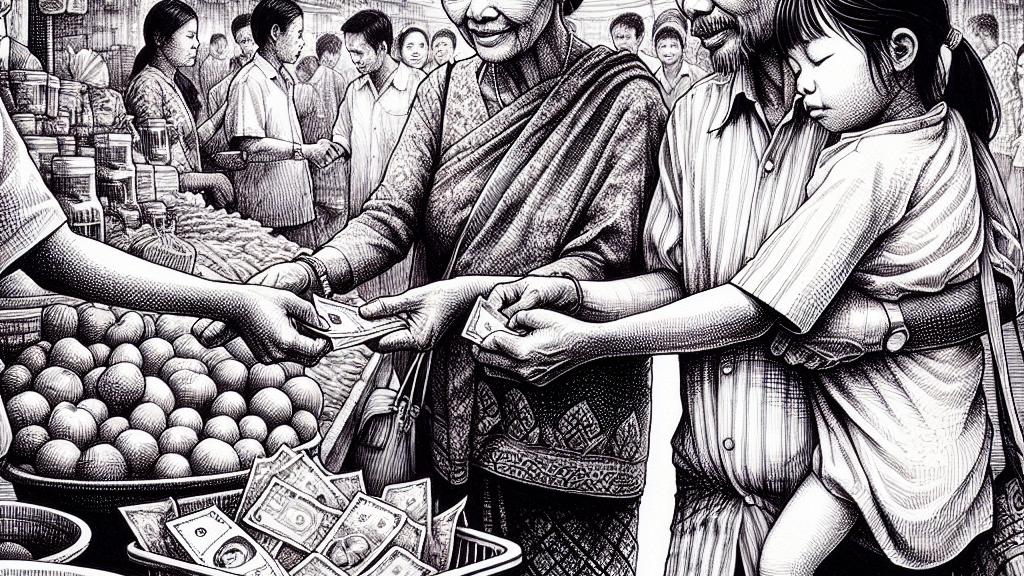Handout Recipients Encouraged to Avoid Alcohol for Safety
Overview
- Thailand's government is implementing a vital initiative, distributing 10,000-baht cash handouts to support those facing financial difficulties.
- Activists vigorously urge recipients to wisely allocate their funds, emphasizing the need to avoid alcohol for personal and public safety.
- As economic uncertainties grow, critical questions emerge about the long-term viability and future adjustments of this cash distribution program.

Government Cash Handout in Thailand
In a commendable response to ongoing economic hardships, the Thai government has initiated a significant cash handout program, providing 10,000 baht to approximately 14.5 million people, including the low-income and disabled communities. This financial lifeline is designed not only to alleviate immediate concerns like purchasing food and paying rent but also to stimulate local economies. Picture a family using this aid for basic groceries or school supplies— these funds can make a world of difference. However, as citizens rejoice, pressing inquiries loom: Will these handouts truly uplift those in need, or will they result in impulsive spending that negates their intended benefits?
Call to Avoid Alcohol
With the arrival of these cash handouts, a vital message emerges from anti-drunk driving advocates: spend wisely and avoid alcohol. Campaigners, including the notable Phattarabhandhu Krissana, fervently advocate for recipients to steer clear of using their newfound resources on alcoholic beverages. The underlying concern is not just about moderation; reckless spending on alcohol could lead to increased road accidents and devastating consequences for individuals and families. Consider the rippling effect: one bad decision can shatter lives, not just for the drinker but for others on the road. Instead, they encourage individuals to utilize their funds for pressing necessities or investments that enhance safety and security, thus prioritizing community well-being.
Future of the Handout Scheme
As the cash handout rollout continues, uncertainty surrounds the future of the program. Early discussions indicate that subsequent distributions may be adjusted to only 5,000 baht per person, primarily to allocate funds for urgent needs like disaster relief in flood-affected areas. This potential shift raises alarms about the capacity for sustained economic support. Business owners, witnessing sluggish activity, are skeptical about whether such reductions can genuinely stimulate local economies. Ultimately, as recipients grapple with their financial future, the question persists: will these handouts catalyze significant change or merely provide temporary relief in a complex economic landscape?

Loading...